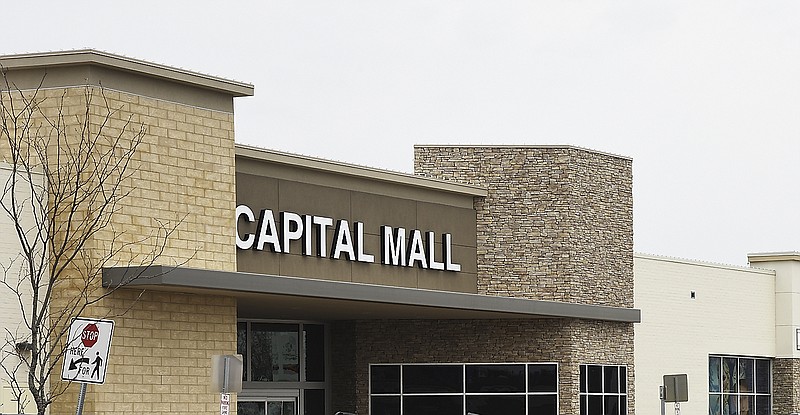The Jefferson City Industrial Development Authority has approved a proposal for underwriting bonds to afford the local company redeveloping Capital Mall more upfront financial help to attract new commercial tenants.
The Industrial Development Authority on Wednesday approved Stifel, Nicholaus and Company Inc. of St. Louis as the underwriter for the proposed issuance of tax increment financing and special district revenue bonds.
The city's Industrial Development Authority works toward commercial and industrial development and is tasked with issuing revenue bonds for projects. The group consists of seven members involved in the areas of financing, construction and real estate.
Last month, Rob Kingsbury of Farmer Holding Company, whose subsidiary F&F Development purchased Capital Mall in 2012, told the board the bonds would help the developer sign leases, possibly later this year, to fill two large commercial spaces on the mall property.
One of those opportunities, Kingsbury said, would be to fill the 75,000 square feet of space formerly occupied by Sears, which closed its Jefferson City store in 2017.
Kingsbury said F&F Development is looking at two possibilities for the Sears space that would be "non-core retail uses," and it would require an investment of $4.2 million in bonds to fill that space with a single tenant.
Another opportunity for a restaurant to fill an outlot site on the mall property would require an additional $2 million investment from the developer, Kingsbury said in April.
F&F Development is proposing Jefferson City allow the company to bond on future tax increment financing (TIF) and community improvement district (CID) revenues.
TIF helps finance improvements to a property in a designated redevelopment area by allowing developers to be reimbursed for certain improvements through new tax revenues generated by the project. The Capital Mall CID uses sales tax revenue to help pay for improvements at the mall.
"Originally, when they established the Capital Mall TIF and CID, it was a pay-as-you-go TIF," Jefferson City Counselor Ryan Moehlman said last month. "This means the developer pays for upfront development costs and is reimbursed for costs that are eligible under the TIF as those TIF revenues become available."
The Capital Mall TIF and CID have been doing what they are supposed to since 2014 - generating revenue to reimburse the developer for investments in the property, Moehlman said in April.
"What F&F would do is take the revenue generated by the TIF and CID and be redistributed back to the developer, which will allow them to get some funding up front through industrial revenue bonds to address some opportunities coming their way," Mohelman said.
Kingsbury said last month that F&F Development hopes to get $8 million-$9 million from the bonds, which would be used to attract new businesses. Without money from the bonds, the company would have to wait for money to be collected from the TIF and CID to pursue any new opportunities.
The city has started a revenue study to see if the revenue generated by the TIF and CID is sufficient to issue the bonds, Moehlman said. He hopes the study, which F&F Development is paying for, will be completed within four weeks.
If all goes as planned, Moehlman said, they hope to issue the bonds in July, but no later than August.
"The City Council will have review of this project," he said. "The original development agreement between the city and the developer will need to be amended to allow this transaction at their first meeting in June, so they will have the ability to see if they are good with this, and that would be before the authority board would issue bonds. If they don't pass the matter in June, then F&F doesn't have the ability to convert the money into bonds."
Cole County Collector Larry Vincent, who sits on the Industrial Development Authority board, asked Moehlman if the TIF's sales tax revenue would be affected if F&F Development were to convert the Sears space into office space instead of retail.
"That would convert the space into non-sales tax-generating component of the TIF," Moehlman said. "That's what the market study is intended to prove - that even with the reduction of that square footage, that the TIF and CID are still generating enough revenues to pay back the bonds. There have been some initial non-independent studies of the revenue streams that seem to say that's probably possible. The revenue study is to give a formal, independent look at the revenues."

